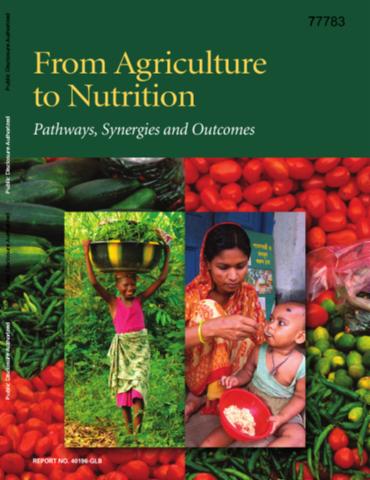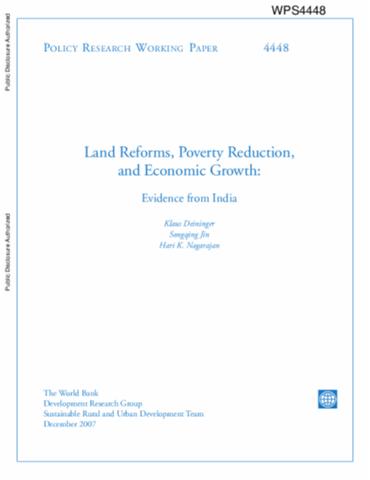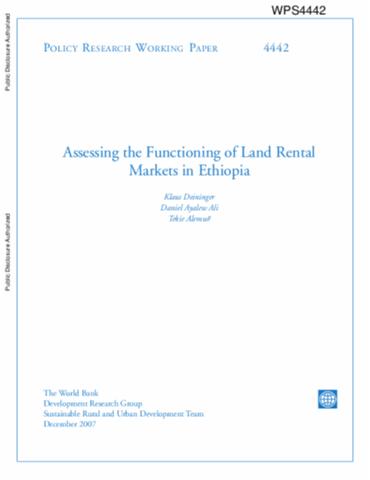Community-based water law and water resource management reform in developing countries
The lack of sufficient access to clean water is a common problem faced by communities, efforts to alleviate poverty and gender inequality and improve economic growth in developing countries. While reforms have been implemented to manage water resources, these have taken little notice of how people use and manage their water and have had limited effect at the ground level.
Spatial and temporal analysis of vegetation change in agricultural landscapes: A case study of two brigalow (Acacia harpophylla) landscapes in Queensland, Australia
The majority of landscapes around the world have been modified or transformed by human activities to meet the needs of human societies. The loss of native vegetation for agricultural development affects the sustainability of growing proportion of the world's ecosystems.
From Agriculture to Nutrition
The report seeks to analyze what has been learned about how agricultural interventions influence nutrition outcomes in low-and middle-income countries, focusing on the target populations of the millennium development goals-people living on less than a dollar a day. It also sets out to synthesize lessons from past efforts to improve the synergies between agriculture and nutrition outcomes.
Land Reforms, Poverty Reduction, and Economic Growth : Evidence from India
Recognition of the importance of institutions that provide security of property rights and relatively equal access to economic resources to a broad cross-section of society has renewed interest in the potential of asset redistribution, including land reforms. Empirical analysis of the impact of such policies is, however, scant and often contradictory.
Assessing the Functioning of Land Rental Markets in Ethiopia
Although a large theoretical literature discusses the possible inefficiency of sharecropping contracts, the empirical evidence on this phenomenon has been ambiguous at best. Household-level fixed-effect estimates from about 8,500 plots operated by households that own and sharecrop land in the Ethiopian highlands provide support for the hypothesis of Marshallian inefficiency.
Liberalisation and the Debates on Women’s Access to Land
The reform of land tenure institutions is now back on the national and global policy agendas. While at a certain level of generality the principle of gender equality in access to resources, including land, has been endorsed by a diverse range of policy actors, there are many tensions and ambiguities likely to obstruct women’s effective access to land and its contribution to decent livelihoods.
Desplazamiento forzado y propiedad de la tierra en Antioquia, 1996-2004
El desplazamiento forzoso es un fenómeno mundial que ha acompañado crisis políticas y sociales, relacionado, además, con el dominio del territorio por parte de los grupos inmersos en el conflicto. En Colombia, este fenómeno social se ha incrementado en los últimos años, junto con problemas agrarios, sociales y productivos.
Land Tenure, Land Use and Sustainability in Kenya: Towards Innovative Use of Property Rights in Wildlife Management
Context : brief historical background, and the genesis of the GAAS action research efforts
Chapter in ARCHIV 127335 - Rebuilding common property management : a case study of community-based natural resource management in rural Guizhou, China










